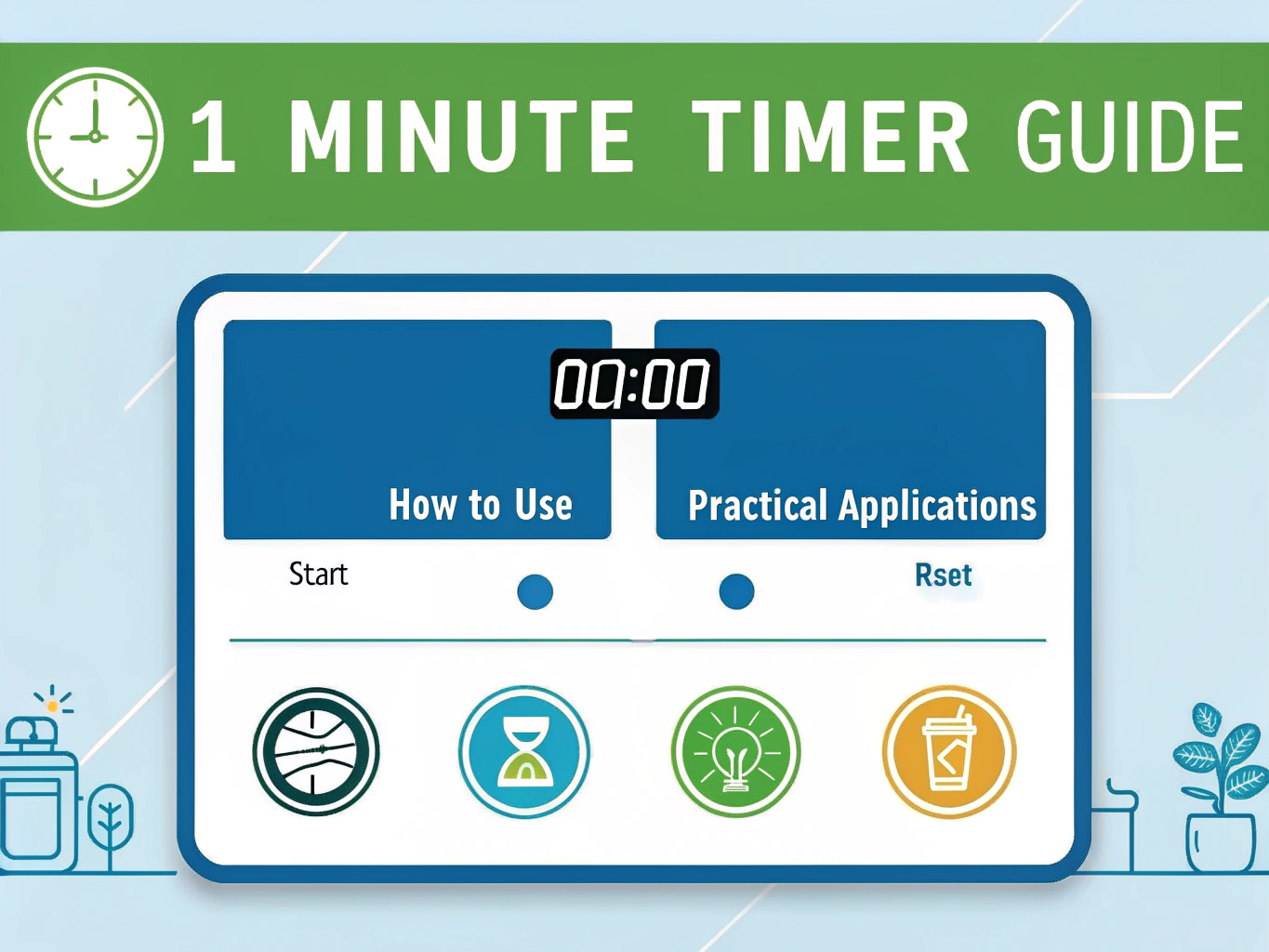1 Minute Timer
Is this tool helpful?
How to use the tool
- Start – Press Start; the display moves from 01:00 to 00:59 and continues downward.
- Pause / Resume – Click the same button any time to halt, then resume the countdown.
- Reset – Hit Reset to return to 01:00.
- Sound toggle – Leave the checkbox on for an alarm; uncheck for silent timing.
- Example inputs –
- Change the code to “timeLeft = 45” to time a 45-second sprint.
- Set “timeLeft = 30” for a 30-second espresso bloom.
Quick-Facts
- Default interval: 60 s per ISO 8601 hh:mm:ss format (ISO 8601:2019).
- Alarm file: 44.1 kHz MP3 hosted by Mixkit (mixkit.co).
- Browser support: works in Chrome 85+, Firefox 80+, Safari 15+ (MDN Web Docs, 2023).
- Average reaction to sound cue: 215 ms in adults (Kosinski, 2013).
FAQ
What does the timer do?
The script counts down exactly 60 seconds, displays remaining time, and fires an audible bell at zero (ISO 8601:2019).
Can I set a different duration?
Edit the JavaScript line timeLeft = X. For example, 90 gives a 1 min 30 s interval.
Why use a 1-minute timer for exercise?
One-minute high-intensity bouts improve VO₂ max as effectively as longer sessions (Gillen, 2016).
How loud is the alarm?
The file peaks at −1 dBFS, roughly 85 dB through laptop speakers—safe for short exposure (NIOSH, 1998).
Does the alarm work on mobile?
Yes, but iOS mutes autoplay until you tap the page, so test sound first (Apple Developer, 2022).
Why does the display flash red?
The last 10 seconds pulse to draw your gaze, echoing NASA’s “critical-phase” visual cueing (Human Factors, 2019).
Is the code open source?
You may copy or adapt the script; it contains no proprietary libraries.
How can microbreaks help focus?
“Short, regular pauses cut mental fatigue and sustain accuracy” (Kim et al., 2017).
Important Disclaimer
The calculations, results, and content provided by our tools are not guaranteed to be accurate, complete, or reliable. Users are responsible for verifying and interpreting the results. Our content and tools may contain errors, biases, or inconsistencies. Do not enter personal data, sensitive information, or personally identifiable information in our web forms or tools. Such data entry violates our terms of service and may result in unauthorized disclosure to third parties. We reserve the right to save inputs and outputs from our tools for the purposes of error debugging, bias identification, and performance improvement. External companies providing AI models used in our tools may also save and process data in accordance with their own policies. By using our tools, you consent to this data collection and processing. We reserve the right to limit the usage of our tools based on current usability factors.







